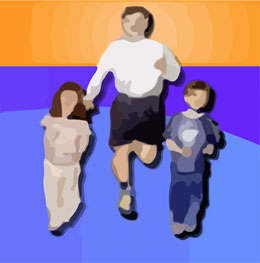 Feel Love Image by Ben
Feel Love Image by Ben
Unless you speak your child’s love language, even if you love them, they may not FEEL LOVE. Often this is the reason that they are acting up or acting strangely. Giving and receiving love is at the center of everyone’s well-being. “Without love, life can be exceedingly bleak.” With love, we can get through anything life throws at us.
Love is a learned response and a learned ability. Love has the potential to change the world! Love is a behavior or action that leads to the emotion of feeling that love.
There is a book I highly recommend that you need to read on the subject of love if you haven’t yet. It will teach you how to best give love and how you specifically best receive it. Not everyone feels love the same way. In fact, there are 5 ways called languages and even some nuance to these languages referred in the book as dialects. The title of the books are, “The 5 Love Languages”, “The 5 Love Languages of Children: The Secret to Loving Children Effectively” or “The 5 Love Languages of Teenagers: The Secret to Loving Teens Effectively” all written by Gary Chapman and all the quotes here are from his books references above. Yes, your child’s love language may be different from yours, or if you have twins, each of them may even have their own love languages different from one another. Knowing how to give your kids love in their language is the key to making them feel loved.
How can you discover their love language? To help answer that question, how does your child show you love? Are they always hugging or trying to embrace or you? That child’s primary love language is likely physical touch. Does your child compliment you? Maybe they speak the love of positive affirmations. The 5 love languages are “Words of Affirmation, Quality Time(wink wink), Receiving Gifts, Acts of Service, and Physical Touch.” Learning these lessons will go well beyond improving the relationship you have with your kids, your significant other, even your coworkers, speaking peoples love languages will greatly benefit all of your relationships.
“If you meet your child’s needs for love, you can then see a change in their behavior.”
You may genuinely love your child, but unless they feel genuinely loved and cared for, then they can’t perform to their best ability. “Unless you speak the love language that communicates to them that love, they will not feel that love.” This is called, “filling their emotional tank” that can run low if it’s not refilled with unconditional love given to them in their love language. Unconditional love means love without rewards like for doing a chore or good grades. Often children later in life will share with a therapist that they knew their parents loved them, but they never could feel that love.
We love our kids, let’s make sure that they feel that love as well.
